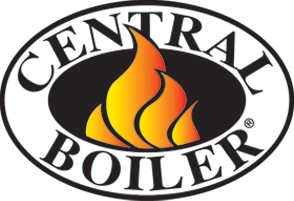Clean, breathable air is a fundamental necessity for overall health and well-being. Yet, the importance of indoor air quality is often overlooked even though we spend approximately 90% of our time indoors. Indoor air pollution, stemming from sources like mold, chemicals, and allergens, can significantly affect our health, leading to an array of respiratory issues, allergic reactions, and other health complications.
Conversely, improving indoor air quality can yield profound health benefits. If you’re wondering how, read on as Elite Mechanical LLC explores the direct relationship between improved indoor air quality and enhanced health, emphasizing the critical role of a pollution-free indoor environment in boosting respiratory function, reducing allergy symptoms, improving sleep quality, and even enhancing cognitive function.
Role of HVAC Systems in Indoor Air Quality
HVAC systems play a vital role in maintaining and improving indoor air quality. Modern systems can effectively control temperature, humidity, and air circulation, all of which contribute significantly to the overall quality of indoor air. Here are some ways HVAC systems help improve indoor air quality:
- Air Filtration: HVAC systems have air filters designed to remove dust, pollen, pet dander, and other airborne particles that can negatively impact IAQ and health.
- Humidity Control: Excessive humidity can result in the growth of mold and mildew, which cause respiratory problems and allergies. HVAC systems help maintain a balanced humidity level, thus reducing the possibility of mold and mildew growth.
- Proper Ventilation: Good indoor air quality relies heavily on proper ventilation. HVAC systems circulate fresh air throughout the home, reducing the concentration of indoor pollutants.
- Air Purification Systems: Some HVAC systems can be combined with additional air purification technologies, such as ultraviolet (UV) lights and HEPA filters, further enhancing the system’s capabilities to improve air quality.
Tips for Improving Indoor Air Quality
There are numerous strategies homeowners can implement to ensure their indoor air quality remains healthy. Here are some simple tips for enhancing the air quality in your home:
- Consistent HVAC Maintenance: Regularly cleaning and maintaining your HVAC system, including changing air filters and scheduling annual tune-ups, ensures your system operates efficiently and effectively filters airborne pollutants.
- Proper Ventilation: Promote proper airflow and ventilation by opening windows whenever possible, utilizing exhaust fans in bathrooms and kitchens, and installing an energy-efficient ventilation system.
- Control Humidity Levels: Use a dehumidifier or a humidifier, depending on your region’s climate, to maintain ideal indoor humidity levels between 30-50%.
- Use HEPA Filters or Air Purifiers: Upgrading your HVAC system’s air filters to HEPA-rated filters or investing in standalone air purifiers can help remove smaller particles and improve indoor air quality.
- Keep Your Home Clean: Regular cleaning practices, such as vacuuming, dusting, and mopping, can reduce the amount of dust, allergens, and pollutants that accumulate indoors.
- Limit Exposure to Indoor Pollutants: Avoid smoking indoors, use low-VOC (volatile organic compounds) paint and building materials, and minimize the use of harsh chemicals and cleaning products to reduce indoor air pollution.
- Indoor Plants: Including air-purifying plants in your home adds aesthetic appeal and helps improve air quality by absorbing pollutants and releasing oxygen.
Long-term Benefits of Improved Indoor Air Quality
- Enhanced Health and Comfort: By improving indoor air quality, you can reduce the risk of allergies, respiratory issues, and other detrimental health effects from poor IAQ. A healthier indoor environment also contributes to greater comfort for occupants.
- Increased Productivity: Better IAQ can lead to increased productivity and improved cognitive function due to reduced indoor pollutants and better ventilation.
- Energy Efficiency: Keeping your HVAC system well-maintained to improve air quality can also lead to higher energy efficiency. When your system operates efficiently, it consumes less energy and has a longer lifespan.
- Improved Sleep Quality: Better indoor air quality can lead to more restful sleep and a healthier sleep environment by reducing potential irritants, such as allergens, dust, and volatile organic compounds (VOCs).
- Enhanced Property Value: A well-maintained HVAC system and improved indoor air quality can be attractive selling points for potential home buyers and directly contribute to a higher property value.
By comprehensively addressing the factors affecting indoor air quality, homeowners can make educated decisions about their HVAC systems, home maintenance, and overall lifestyle choices. Prioritizing indoor air quality can positively impact health, comfort, and overall well-being. By being proactive and implementing practical solutions, homeowners can ensure a cleaner, healthier living environment for themselves and their families.
Achieving a Healthier Home Environment with Expert HVAC Services
As we spend a significant portion of our lives indoors, clean, healthy air in our homes, workplaces, and recreational spaces becomes increasingly paramount. So, it’s safe to say that improving indoor air quality is a cornerstone for a healthier and more fulfilling life.
As experts in heating, ventilating, and air conditioning services, Elite Mechanical LLC is here to help you create a comfortable and healthy indoor environment. Our HVAC contractors in St Peters offer comprehensive HVAC maintenance, repair, and installation services, tailored to your unique needs. Contact us today to learn more about how our expertise can help you enhance your home’s indoor air quality and enjoy a cleaner, healthier living space!









